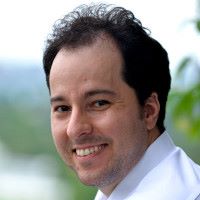My primary goal as an educator is to provide a holistic, inclusive, and student-centered education that fosters critical thinking and empowers students to address complex and real-world challenges. In pursuit of this goal, I leverage my unique background in building physics, urban climatology, and computer science to design curricula that prepare students for the evolving demands of architecture and engineering professions. My commitment to fostering critical thinking and creativity was forged during my first substantial teaching experience at the National University of Singapore (NUS). Later, I co-instructed a course at Carnegie Mellon University (CMU), which made me realize the importance of creating a learning environment that is accessible to students with various backgrounds. I have completed the University Teaching Qualification (UTQ) program at the Delft University of Technology (TU Delft) to learn how to design and deliver courses using active learning pedagogical methods.
When serving as a teaching assistant for the course Digital Construction at the School of Design and Environment of NUS, I fostered critical thinking and creativity through project-based assignments. Specifically, I drew upon my expertise in building energy simulation to design a group assignment where bachelor students compared simulation data using Jupyter notebooks and presented their findings using PowerPoint. During presentations, students were assessed not only on clearly explaining concepts introduced in class, but also on creatively presenting their results. For example, some students employed theatrical methods to present their findings. The assessment was mainly formative, providing comprehensive guidance on how students could further develop their critical thinking and creativity, rather than assigning a score.
After my doctoral studies at NUS, I received the Global Marie Skłodowska-Curie Fellowship, which allowed me to visit the Department of Civil and Environmental Engineering at CMU. The department is committed to interdisciplinary and system-oriented thinking through a curriculum that integrates computer science, data analytics, and artificial intelligence into the study of the built and natural environments. To support the department’s mission of offering comprehensive training across disciplines, I leveraged my dual background in computer science and building physics to co-instruct the master’s-level course Autonomous Sustainable Buildings. This combined knowledge was instrumental in guiding students through their assignments and course projects. When forming the groups for the course projects, I encouraged students to team up with people from different backgrounds, such as architecture, civil engineering, and mechanical engineering.
In parallel to my research in the Department of Urbanism at TU Delft, I attended the UTQ program. This rigorous certification has provided me with a scholarly foundation for my teaching. The program’s DESIGN module gave me a structured framework based on Bloom’s Taxonomy and constructive alignment to ensure my learning outcomes, activities, and evaluations are all in sync. I’ve applied this to design my Introduction to Linux Commands lectures at both the bachelor’s and master’s levels. The ASSESS module reinforced my belief in formative over summative assessment, leading me to use real-time online quizzes to check progress. In the TEACH module, I was formally assessed on my ability to apply these concepts, using active methods like live demos and role-playing games, which were recorded for review. Finally, the SUPERVISE module has prepared me to be an empathic listener who fosters autonomy in master’s and doctoral students. After my final assessment, I received a diploma certifying my ability to develop and deliver high-quality curricula in higher education across Europe.
Teaching experience
- Teaching Assistant, Geographical Information Systems (GIS) and Cartography (GEO1002), Faculty of Architecture and the Built Environment, Delft University of Technology, Fall 2025 (Instructor: Giorgio Agugiaro)
- Teaching Assistant, Modeling wind and dispersion in the urban environments (GEO5051), Faculty of Architecture and the Built Environment, Delft University of Technology, Spring 2025 (Instructor: Clara Garcia-Sanchez)
- Co-Instructor, Autonomous Sustainable Buildings: From Theory to Practice (12-770), Department of Civil and Environmental Engineering, Carnegie Mellon University, Spring 2024
(Main instructor: Mario Berges) - Teaching assistant, Digital construction (PF1103), Department of Building Science, School of Design and Environment, National University of Singapore, Spring 2019
(Instructor: Miller Clayton) - Teaching assistant, Project in software engineering (CS 13X008), Department of Computer Science, Faculty of Sciences, University of Geneva, Spring 2010
(Instructor: Marchand-Maillet Stephane) - Teaching assistant, Software engineering (CS 13X003), Department of Computer Science, Faculty of Sciences, University of Geneva, Fall 2009 (Instructor: Marchand-Maillet Stephane)
